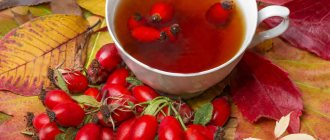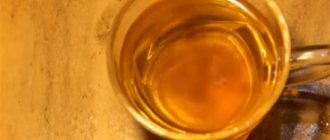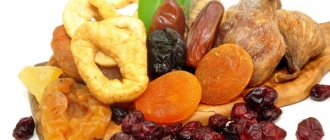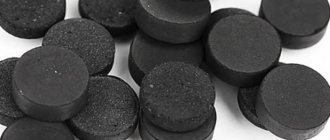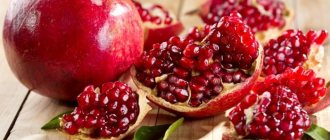Chamomile is one of the most popular remedies used in herbal medicine and cosmetology. Despite the wide range of beneficial properties, many young mothers are concerned about the safety of this medicinal plant for the child. Is chamomile allowed while breastfeeding? Is tea based on it useful during this period, or can it only do harm? We will talk about all this further.
Chamomile and its beneficial properties
Chamomile is a truly unique plant, all of whose healing properties are difficult to list. Its flowers contain a number of useful elements. The most valuable of them are:
- essential oils, in particular chamazulene;
- flavonoids;
- glycosides;
- nicotinic, ascorbic, salicylic acids;
- microelements.
The rich active composition provides a wide range of uses of the medicinal plant. It is prescribed for the treatment and prevention of many diseases:
- Thus, due to the high content of flavonoids, chamomile is endowed with antibacterial and antiviral properties. This makes it possible to successfully use the plant in the fight against flu and colds.
- Chamomile is known for its disinfectant effect, which allows it to be used to relieve various inflammations, wash wounds and rinse.
- Thanks to its choleretic properties, chamomile helps cope with liver and gallbladder diseases.
- It is also used as an antispasmodic, as it helps to relax spasmodic areas of the muscles. A special effect is achieved with intestinal spasms and stomach colic.
- As an anti-inflammatory agent, chamomile is used internally and externally. Surely many people know that chamomile tea compresses give good results for eye inflammation, in particular conjunctivitis.
- Chamomile is actively used in cosmetology. It is added to various cosmetic products (creams, shampoos, face masks, etc.).
An equally valuable property of chamomile is its ability to calm the nervous system. Thanks to its calming properties, the plant is effectively used to combat depression, which is important during breastfeeding. Chamomile decoction during breastfeeding is recommended to be drunk at night not only by the mother. Starting from 3 months of age, it can be given to the baby to help him sleep better. Chamomile is also recommended for breastfeeding if the child has dysbiosis.
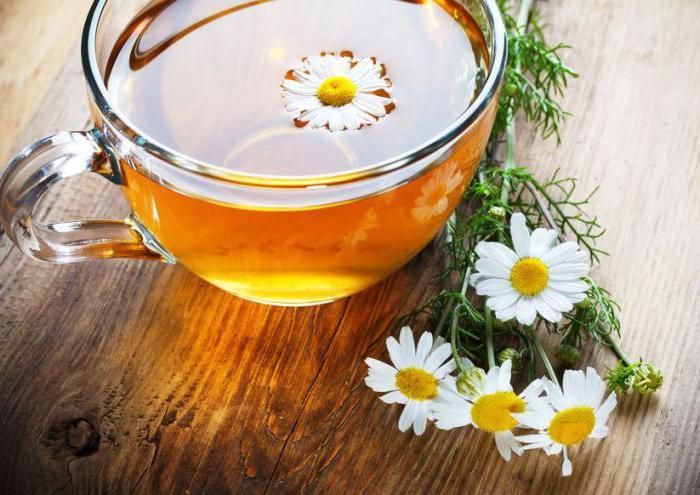
Taking chamomile while breastfeeding
Many people know that many medications are prohibited during lactation. But what if a nursing mother gets sick? In such a situation, the problem is solved with the help of all permitted means, in particular with the help of herbal medicine. Often the choice is chamomile. This medicinal plant helps in the following cases:
- Increased nervous excitability and insomnia. Nursing mothers are advised to drink chamomile infusion before bed. This will help get rid of anxious thoughts, relieve fatigue and tension. Chamomile tea will also be a good help for your baby. It will help you fall asleep faster if your baby has tummy pain or is teething.
- Colds. Since chamomile has antiseptic properties, its use can get rid of cough, runny nose, tonsillitis and pharyngitis not only for the child, but also for the nursing mother.
- Dermatological problems. Strongly brewed chamomile during breastfeeding helps with cracked nipples. In addition, it prevents wounds from festering, promotes their healing, and also eliminates pimples and boils.
- Digestive disorders. Diarrhea, increased gas formation, colic are a very unpleasant phenomenon that takes away the joy of life and causes a lot of inconvenience. If the mother has digestive problems, even if the baby feels well, it is worth using chamomile.
- Diseases of the genitourinary system. Infusions taken orally, as well as douching, are used to treat cervical erosion, thrush, and inflammation of the urinary system. They help normalize the menstrual cycle.
- Toothache. The decongestant and anti-inflammatory properties of the medicinal plant are used to relieve toothache in adults and to alleviate the condition of a baby who is teething.

Child's reaction: when is it better to refuse the drug?
Absolute contraindications to the use of chamomile are:
- predisposition to the development of an allergic reaction in women and babies;
- diarrhea or a tendency to have it.
Plant-based preparations should be used only if there are no problems with the gastrointestinal tract for at least a week.
Chamomile is prohibited for ARVI and colds, when diarrhea becomes a side effect of the disease.
Healthy children can also have disorders. In these cases, use of the drug is stopped.
Chamomile should be avoided in the following cases:
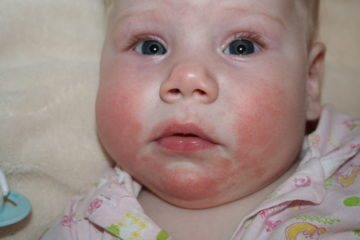
- rashes on the skin;
- swelling;
- frequent urination or bowel movements;
- change in color and consistency of stool;
- increased gas formation;
- frequent regurgitation in infants;
- redness of the baby's cheeks;
- increased tearfulness;
- sleep disturbance, irritability;
- presence of diarrhea.
Expert opinion
Anastasia Mikhailovna Moiseeva
Practicing general practitioner, 18 years of experience.
If such symptoms do not disappear after stopping the use of the drug, you should seek help from a specialist.
Is it possible to drink chamomile while breastfeeding?
As noted earlier, the use of chamomile is indicated for various ailments. Chamomile tea, the benefits and harms of which during breastfeeding are still being discussed by scientists, helps to cope with disturbances in the functioning of the digestive organs, which are often observed in the mother and her baby.
Thanks to the calming and relaxing properties of the plant, it is possible to normalize sleep.
Chamomile often affects milk production during breastfeeding. Moreover, in some cases its volume may increase, and in others, on the contrary, decrease. However, most lactation consultants tend to believe that excessive consumption of chamomile suppresses milk production. One way or another, experts recommend that nursing mothers follow moderation and drink no more than 2 cups of chamomile tea per day. Do not forget about the likelihood of allergic reactions to chamomile in a child.
Allergy to chamomile
In rare cases, drinking chamomile tea by a nursing mother causes allergic reactions. The tendency towards them is associated with the individual characteristics of the infant’s body. Therefore, you need to start taking chamomile with small doses, monitoring the baby’s well-being. An allergy to a plant is accompanied by the following symptoms:
- rashes and redness on the skin;
- labored breathing;
- the appearance of nausea and vomiting;
- discharge of mucus from the nasal cavity;
- swelling of the eyes and lips.
If the above symptoms appear, the mother should stop taking tea or decoction. It should also be noted that an allergic reaction in an infant may occur even when the plant is used externally.

Contraindications for use
Side effects:
- During pregnancy. In later stages, the substances contained in the plant can activate the muscles of the uterus, which will lead to miscarriage or premature contractions;
- Stomach upset. If there is a predisposition to diarrhea, frequent diarrhea;
- Allergy to plants of the aster species. It does not have a strong allergen, but it is necessary to stop using the infusion in case of individual intolerance. Allergies can occur during feeding and negatively affect the health of the baby.
If we take into account only the period of breastfeeding, then only two contraindications remain. This means that if there is no diarrhea or allergic reactions, then drinking chamomile remedies is allowed.
Often people turn to chamomile medicines when they detect symptoms of colds and flu for anti-inflammatory purposes. These diseases are often accompanied by diarrhea. Therefore, refrain from using chamomile until complete recovery!
Rules for taking chamomile during breastfeeding
Is it possible to drink chamomile while breastfeeding? In the absence of negative reactions from the child, the permissible dose of chamomile tea for the mother is no more than 2 cups per day. The best time to drink is after lunch and before bed. This will ensure good sleep for mother and baby and help them calm down. It is recommended to start drinking chamomile tea, the benefits and harms of which depend on the individual characteristics of the body, in small quantities, while monitoring the child’s condition. If the baby shows the slightest reaction, you should stop taking it.
And in order to eliminate it as much as possible, the medicinal plant must be brewed correctly, observing the prescribed concentration of tea or infusion:
- For mother, use one sachet per 200 ml of boiling water. The duration of infusion is no more than 15 minutes.
- For a baby, the concentration should be 3 times less, and the first portion of the drink should not exceed 1 teaspoon.
It should be noted that pediatricians generally do not recommend giving your baby herbal infusions, including chamomile, to drink in the first month of life. After this period, the maximum permissible dose is 50 ml per day.
Chamomile tea during breastfeeding is recommended for a mother who is not producing enough milk to drink no more than a cup a day, preferably before going to bed. It is also important to note that the duration of treatment should not exceed 2 weeks. The need to extend the course must be agreed with a specialist.

Can nursing mothers drink chamomile tea and how exactly?
As already mentioned, a nursing mother can drink chamomile tea if there are no problems with lactation and she does not abuse the drink. If a mother has problems with the gastrointestinal tract, then chamomile will help eliminate them. In this case, treatment is necessary, because any dysfunction of the gastrointestinal tract leads to a violation of the intestinal barrier function. As a result, the risk of antigens entering the mother’s blood circulation and, as a result, into breast milk increases, and they contribute to the manifestation of allergic reactions and increased flatulence in the baby.
Despite the fact that only a small percentage of people are allergic to chamomile, mothers should be careful with chamomile tea and introduce it into their diet in the morning and in small portions.
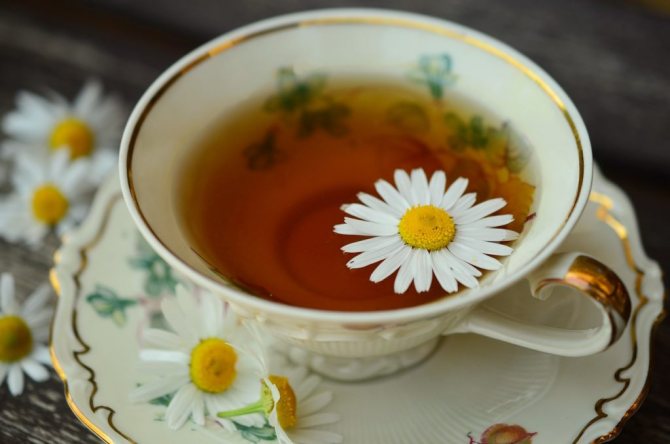
Now there is a large assortment of teas for pregnant and nursing mothers, all of them herbal. The main problem in a pharmacy or store may be that a young mother simply does not know which tea to choose: classic loose tea (or in filter bags) or the more convenient granules. It is worth noting that both options are intended for nursing mothers, which means they do not contain preservatives, harmful additives or dyes.
The difference is convenience and price. Tea in granules can simply be diluted in water and can be drunk immediately, while brewing a filter bag, not to mention regular loose tea, will take some time. Therefore, the price for granulated teas is several times higher.
The general recommendation is no more than two glasses per day.
Chamomile decoction. To prepare a chamomile decoction you need 1 tbsp. Pour a spoonful of chamomile into a glass of boiling water and let it brew for 20-30 minutes. Next, pass through a sieve/gauze. If you need a strong decoction, you should use a larger amount of herb and keep the decoction in a water bath for about half an hour or simply bring to a boil.
Chamomile tincture . To prepare the tincture, you will need five teaspoons of chamomile and a glass of cold water (boiled). Leave to steep for at least eight hours, preferably overnight.
Chamomile tea. Pour a glass of boiling water over the tea bag and leave for no more than 15 minutes. If the tea is granulated, the proportions of tea and water are written on the packaging. For insomnia, it is recommended to drink weak chamomile tea 30 minutes before bedtime.
Reviews
How beneficial is chamomile during breastfeeding? Reviews from nursing mothers confirm that drinking tea from it during lactation saves from many problems. So, in the first months of life, when the baby’s gastrointestinal tract is not yet strong and feeding is almost always accompanied by colic, chamomile tea helps to cope with digestive disorders.
In addition, the decoction can solve the problem of increased excitability of the baby, which is accompanied by tearfulness and sleep disturbances. Chamomile especially helps with painful teething.
What herbs can be replaced
A nursing mother can use motherwort as a sedative. It is sold dried and in tablet form. Taking motherwort infusion will help improve sleep and normalize blood pressure.
During lactation, women can drink a healthy drink made from chicory. This plant is safe for an infant. It has a whole range of useful properties:
- antiseptic;
- anti-inflammatory;
- calming;
- tonic.
Mothers who breastfed their babies speak of chamomile with gratitude. She has helped many during breastfeeding. With its help, women treated their throats, restored sleep, fought prickly heat on the skin of a child, and treated conjunctivitis.
